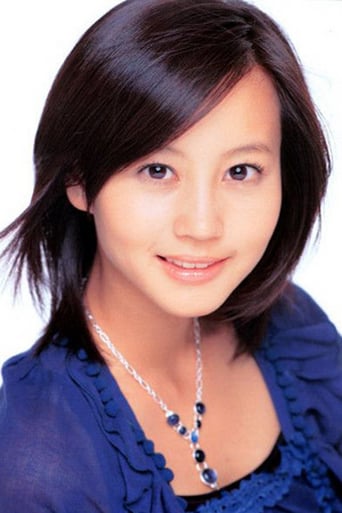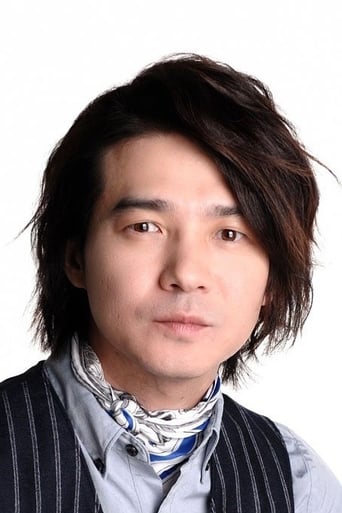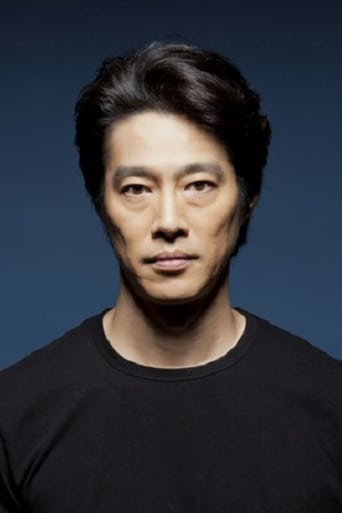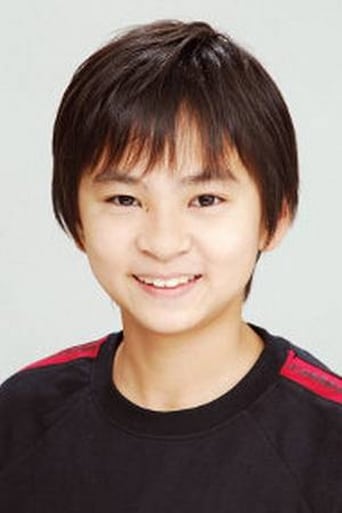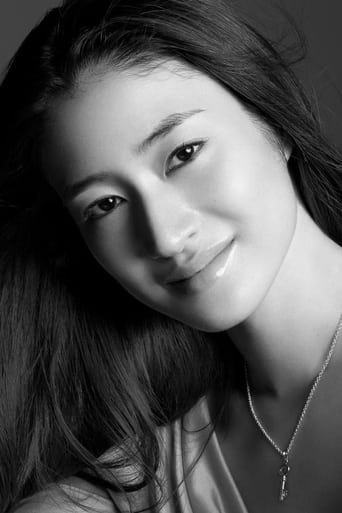Nonureva
Really Surprised!
Supelice
Dreadfully Boring
Paynbob
It’s fine. It's literally the definition of a fine movie. You’ve seen it before, you know every beat and outcome before the characters even do. Only question is how much escapism you’re looking for.
Kimball
Exactly the movie you think it is, but not the movie you want it to be.
crossbow0106
This is a sequel to the brilliant first film, set in the shadow of the Tokyo Tower. Its now 1959, four months later, and we're still with the same characters. The Tower is now finished. You still have the over the top Suzuki-San, you have Chagawa, who still pines for Hiromi, continues to struggle as a writer and still faces uncertainty as to keeping Junnosuke with him. In this film, the pretty Roku gets a boyfriend, and the Suzuki family takes in a young girl who is a cousin. She is at first very tentative but soon becomes part of the family. Like in the first film, things happen which make you laugh and cry. The laughs are even more frequent, and include a visit from Godzilla! The difference in this film is that the characters like each other more, which is just a great thing. This film, like the first, is just excellent, a feel good film that, though sentimental, is never overbearing. I love these characters. I would guess movie number three is in the works, as there is so much more for these characters to say and experience. You need to watch the first installment before you see this, but its such a treat to see both. Both films have my highest recommendation. They are both excellent.
sageinjapan
One of the best family dramas I have seen. i was wondering how they would continue from the first movie where everything seemed settled. Boy, was I wrong! Not only does this movie wrap up everything (maybe?) but it had me crying tears of joy at the end.The first movie got a 10 from me and I admit crying like a baby at the end of it. Part two was almost as good and worth every penny/yen I spent renting it. I will be buying the DVD box set of the two movies and will be very happy to watch them from time to time.I could not recommend these two movies highly enough.PS: If you haven't seen the first one DO NOT WATCH THIS ONE! You'll be lost and won't enjoy it. You have to see part one first.
jmaruyama
"Always Zoku San Cho Me No Yuhi" is the much anticipated followup to director Yamazaki Takashi's exceptional 2005 film "Always San Cho No Yuhi" which swept the Japan Academy Awards for that year.Based on the the popular manga series "Yuyake No Uta-San Chome No Yuhi" by Saigan Ryohei, "Always" was a nostalgic, touching time capsule look at life in Tokyo's "shitamachi" (working class districts) amidst the backdrop of the construction of the Tokyo Tower, during the late 50s.A box office sensation, Winning both critical and audience acclaim, "Always" ended with a bit of a cliffhanger and it was only a matter of time before a sequel was made."Always Zoku" directly follows the events of the previous movie and begins with a dynamic crowd pleasing opening featuring the familiar movie monster "Godzilla" that puts the recent "Cloverfield" to shame with its visual mayhem.This is part of an elaborate dream sequence belonging to struggling writer Chagawa Ryunosuke(Yoshioka Hidetaka) who is still writing kids fiction stories while trying to get more serious writing assignments.Yet life is good for Chagawa and his young ward, Junnosuke (Suga Kenta) but their happiness is soon put to the test as Junnosuke's estranged father Kawabata (Kohinata Fumiyo) makes another bid at trying to take custody of the child. He gives Chagawa an ultimatum, that should he fail to properly raise and care for Junnosuke, he will take the child away to live with him.Chagawa vows to turn around his aimless life and sets his sights on trying to win the prestigious "Akutagawa-sho" literary award.As Chagawa struggles with his uncertain future, the Suzuki family deals with a family problem of their own. A distant relative has come to them to ask them to care for his young daughter Mika(Koike Ayame), while he deals with a struggling business in the country. Privledged, arrogant and spoiled Mika is at first appalled with her new living arrangements and complains about everything from the lack of a proper TV to the humble food. While garage owner Suzuki Norifumi (Tsutsumi Shinichi) and wife Tomoe (Yakushimaru Hiroko) show restrained patience with the girl, vocal son Ippei(Koshimizu Kazuki) gives Mika a piece of his mind and chides the girl for her selfishness and ingratitude. The two strong willed children dislike each other at first but soon begin to warm up to one another. Mika also develops a special bond with Tomoe, who becomes like a second mother to the girl (Mika lost her mother while still an infant).Meanwhile, young high school intern Hoshino "Rokko" Mutsuko (Horikita Maki) has firmly established herself as part of the Suzuki family and is slowly learning how to become a mechanic. A former high school classmate, Nakayama Takeo (Asai Yosuke), a high school crush, happens by the shop and they soon develop a bit of a romance.Former bar hostess Ishizaki Hiromi (Koyuki) is also adjusting to her newfound life as a burlesque dancer at a local cabaret and now goes by the name of "Betty". While she is surrounded by rich admirers and suitors, she still longs for the simple life that she left back at San Chome Me and eagerly waits for Chagawa to come for her as he had promised.Director Yamazaki and writing partner Kosawa Ryota again turn in a terrific and poignant script which strikes all the right positive and dramatic notes. Although some may find all the "Showa" sentimentality and references a bit puzzling, especially for those 30 years and younger, I found it a fascinating if but idealized look at life in Tokyo during the 50s.The SFX and model work (VFX) by Shibuya Kiyoko are again absolutely extraordinary, particularly the detailed recreations of old Nihonbashi, Haneda Airport, Tokyo Station and the newly constructed Tokyo Tower. It is truly breathtaking and wonderful to behold. The cast is remarkable and special recognition should go to both Yakushimaru Hiroko (Sailor Fuku To Kikanjuu, W No Higeki, Bubble E Go!) and Koyuki (Alive, Last Samurai, Kairo) in their supporting roles. Koyuki was the standout this time in her role as Hiromi/Betty and brought much vulnerability and charm to her role. I couldn't help but cry as she struggled with her feelings for the socially inept Chagura. Her scenes were the most touching and heartfelt I thought. If there are any problems with the film, it is in its absolute idealism and overly positive attitude and outlook. There were no real villains in the film and everyone, even the children are shown to be virtuous and righteous people who seem almost too perfect to be real. Perhaps that was Yamazaki's intention, to present an idealized and near perfect vision of the 50s, but it does strike as a bit of a biased viewpoint and Yamazaki only briefly touches upon some of the social issues and problems that were occurring during the time (the "kakusa shakai" - stark discrepancy between the rich and the poor, rampant crime and theft, juvenile delinquency and unemployment). "Always Zoku" tells the story of a time in Japan when there was an abundance of hope and optimism for a bright promising future. While current times are rough for many Japanese, perhaps "Always Zoke" can serve as a reminder that the Japanese have overcome many obstacles and adversities in the past and can do so again now and in the future.
Furuya Shiro
As my wife said the first part of the sequel was very good, we saw this second part together. Unfortunately without knowing the background of the characters, I could not empathize at all. I told her "the story seemed too much manipulated and I did not empathize it". She said she felt natural. Therefore, I strongly recommend seeing the first part before this one.VFX effects are amazing. Tokyo scenes in the late 1950's are recreated in detail. I first saw the river at Nihonbashi bridge without highway above it. Now the river is cleaner than the movie. Yes, the rivers of Tokyo in high economic growth period was that dirty.By the way, the locale is set to Tokyo in 1959. In 1959, I was almost the same age with the children in this movie. That time, there was a radio drama series "1, 1st street" and a TV drama series "Backstreet". Both dramas portrayed daily life at a backstreet in Tokyo. I was a kid in a local city, but was fascinated in the dramas with cordial atmospheres. The word "ALWAYS" in this movie title may imply to portray daily life too. But I feel every episode is too dramatically manipulated to be ALWAYS but ONE TIME. By the way the subject of the novel Chagawa chose for his masterpiece is good.

